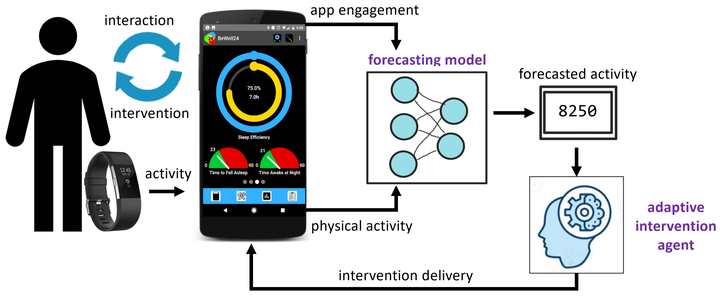
Abstract
Physical activity is a cornerstone of chronic conditions and one of the most critical factors in reducing the risks of cardiovascular diseases, the leading cause of death in the United States. App-based lifestyle interventions have been utilized to promote physical activity in people with or at risk for chronic conditions. However, these mHealth tools have remained largely static and do not adapt to the changing behavior of the user. In a step toward designing adaptive interventions, we propose BeWell24Plus, a framework for monitoring activity and user engagement and developing computational models for outcome prediction and intervention design. In particular, we focus on devising algorithms that combine data about physical activity and engagement with the app to predict future physical activity performance. Knowing in advance how active a person is going to be in the next day can help with designing adaptive interventions that help individuals achieve their physical activity goals. Our technique combines the recent history of a person’s physical activity with app engagement metrics such as when, how often, and for how long the app was used to forecast the near future’s activity. We formulate the problem of multimodal activity forecasting and propose an LSTM-based realization of our proposed model architecture, which estimates physical activity outcomes in advance by examining the history of app usage and physical activity of the user. We demonstrate the effectiveness of our forecasting approach using data collected with 58 prediabetic people in a 9-month user study. We show that our multimodal forecasting approach outperforms single-modality forecasting by 2.2% to 11.1% in mean-absolute-error.